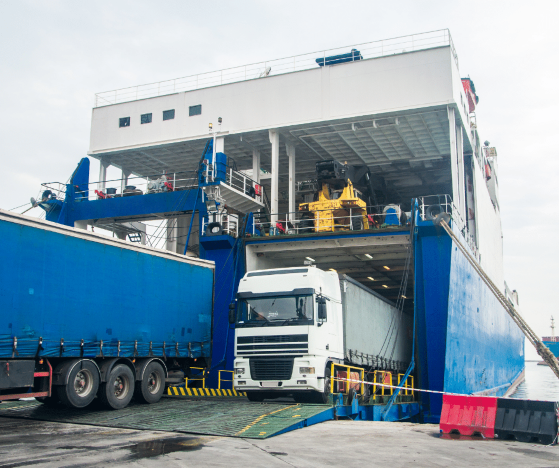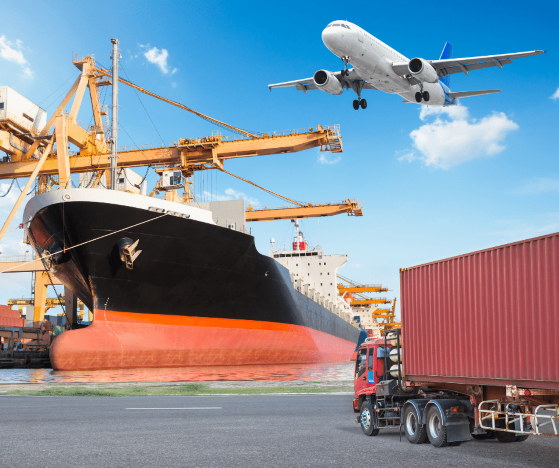Understanding International Trade Compliance
International trade compliance is the process of understanding and adhering to the laws and regulations controlling the import and export of goods, products, information, and technology between two or more countries. In addition, international trade compliance covers many different trade agreements between countries, which can reduce import or export costs.
We can implement proactive customs planning strategies and support to reduce international business risks, thereby avoiding the normal customs delays within your international supply chain.
Navigating Import, Export and International Trade Compliance
Regulators are keeping a closer eye on the expanding global trade of goods and services. Companies that assist the import and export of commodities or are a part of global supply chains that are interrelated, such as banking institutions, freight forwarders, and specialty insurers, are responsible for adhering to international trade compliance requirements in the current regulatory environment. They must abide by a complicated regulatory system that covers controlled items and sanctions in different countries.
The expansion of the world economy and the development of international relations depend heavily on commerce. But managing global trade has its share of difficulties and complications. To facilitate smooth transactions, businesses must abide by certain rules and guidelines. International trade compliance maps the crucial framework of business standards and processes that ensures that businesses operating cross-border import and export trade do so within the law.
What is International Trade Compliance?
International trade compliance refers to a robust set of guidelines that businesses should adhere to when conducting business with overseas business partners. Every foreign country has its own set of customs and laws regarding import and export, the rules of origin, and the classification of goods. Companies are required to follow all these rules to guarantee safety, compliance, fairness of trade, and ethical business practices. The majority of multinational corporations adhere to international trade compliance, and they typically have a dedicated team to handle general import and export management and supply chain logistics. This becomes more of a challenge for smaller companies with limited resources.
International trade compliance promotes a legal framework to help businesses conduct fair practices and facilitates global business expansion. Trade compliance, which is required of all businesses, regardless of size, is a great equaliser.
Who is required to comply with trade compliance?
All businesses have a responsibility to comply with trade laws, but importers and exporters have an even greater obligation. The demands for international trade compliance increase with the size of the company's import and export activities. To be compliant, a business must have a thorough understanding of all the laws and regulations that pertain to their business and how to follow them.
If a business gets trade compliance right, they can promote long-term growth and sustainability and have a competitive advantage while satisfying supplier and customer demands. Trade compliance is often an unseen component of an effective international supply chain. Because of the regulatory burden today, strong international trade compliance procedures are particularly crucial for risk mitigation.
Why is international trade compliance important?
To avoid the penalties for non-compliance, it is crucial for businesses and individuals to continue adhering to the rules and regulations of the nations with which they do business. The worst-case scenario may involve jail time for specific people. Other possible consequences may include monetary fines, penalties, and the seizure of commodities arriving at the port.
Following the rules governing international trade compliance is crucial to the survival of companies. Big businesses even set aside specialised teams to handle import and export trade compliance problems exclusively. With the ever-changing political and economic landscape, trade compliance tracking is essential to preventing legal infractions, avoiding penalties, and guaranteeing accurate and timely delivery of commodities.
Risk Assessments and Compliance Audits
A risk report offers a thorough analysis of the compliance protocols and procedures pertaining to your import and export activities, transportation, and storage management. The purpose of this type of inspection is to locate high-risk regions that might require government action. An essential component of your overall compliance picture is a risk report. As a result, a compliance audit questionnaire that examines your global supply chain is typically the best method to identify import and export flaws that can draw unwelcome attention.
Businesses are expected to be proactive when it comes to international trade compliance. We can assist you with the creation and completion of risk assessments and audits.
Programme for Customs Compliance
Your company's import, export, and international trade compliance policies and processes are outlined in a compliance programme. As experts in import, export, and international trade compliance, we can assist in developing a compliance programme for your company to make sure you are abiding by the law. The programme can offer a methodical report that your company's staff can adhere to, guaranteeing their continued compliance. Working with us will result in a programme that is specifically designed to address your individual business requirements for import and export trade.
Anti-corruption measures should also be considered within an international trade compliance programme. Complex anti-corruption legislation, covering behaviours and procedures directly associated with import and export activities, like bribing governmental agents, has been developed recently in several nations. Companies are often required by these anti-corruption regulations to have robust international trade compliance programmes.
Trade Compliance Blog

International Trade Compliance Blog
Contact Us
ICS Global Services provides international trade compliance solutions tailored for global clients that eliminate the complexity and uncertainty of sending and receiving cross-border shipments and payments. Contact us today for import and export compliance guidance and support.
Due to the nature of our work, it's typically easiest to complete this form, and we will get back to you.
Contact Us
We will get back to you as soon as possible.
Please try again later.






